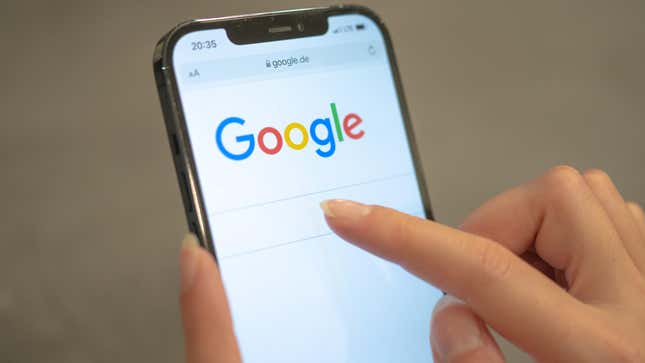Google Finally Adds a ‘Does Not Provide Abortions’ Label to Search Results
The company announced updates to identify whether organizations actually provide abortion care, but there are holes in the plan.
AbortionPolitics

After years of all but ignoring abortion rights advocates and people who have tried to seek abortion care via Google, the company finally announced updates to how its search engine will handle abortion on Thursday, namely through attaching labels to ads to identify whether organizations actually offer abortion. Considering how many search results for abortion care—particularly for users in states that are hostile to or have banned abortion—and Google ads link to anti-abortion crisis pregnancy centers (CPCs), it’s a crucial step. The move comes just days after Yelp announced it would attach similar consumer warnings to listings for anti-abortion crisis pregnancy centers.
CPCs purposefully pose as abortion-providing clinics on their websites and capitalize on key placement in Google (i.e. the top of the search results page) to target abortion seekers. But the anti-abortion facilities, which are awash in state funding, provide neither abortion nor really any other health care. They exist solely to harass, spy on, and convince abortion seekers to not have abortions. As they aren’t health providers, CPC workers aren’t held to the medical privacy standards set by HIPAA, meaning they can—and will—share your private health data at a time when criminal charges for abortion and pregnancy loss are on the rise.
Moving forward, Google told U.S. Sen. Mark Warner (D-VA) and Rep. Elissa Slotkin (D-MI) in a letter that it will include “Provides abortions” or “Does not provide abortions” labels underneath each of its ads. The label will be assigned based on organizations’ responses as part of Google’s abortion certification process—if the organization doesn’t complete this process, it can’t place ads attached to keywords around getting an abortion. The letter doesn’t specify what keywords this entails but presumably includes searches for abortion.
-

-

-

-

-

-

-

-

-

-

-

-

-

-

-

-

-

-

-

-

-

-

-

-

-

-

-

-

-

-

-

-

-

-

-

-

-

-

-

-








































